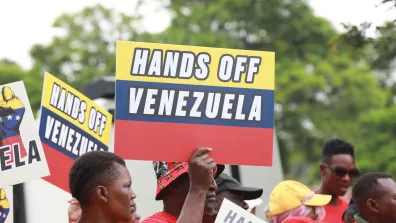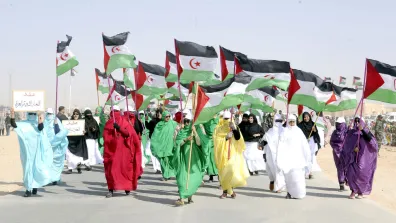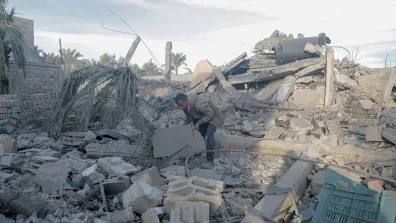Trade unionists say YES — it's time to leave Afghanistan
In February, War on Want, Afghan and British political representatives, leaders of the largest British trade unions, as well as cultural personalities in a letter published by the Guardian invited readers who support the call to e-mail us with a simple YES. Thousands responded and last month we delivered a resounding YES to Foreign Secretary William Hague and gave him a copy of our report The Great Game: The reality of Britain's war in Afghanistan.
The report describes how rather than promoting the security of the Afghan people, Britain's involvement is one of increased civilian casualties and human rights abuses, intensified militarisation of the region and the privatisation of the economy for the benefit of multinational corporations.
Afghanistan has long been regarded as being of critical geopolitical importance. In addition to its other strategic interests, the USA has long promoted a natural gas pipeline through Afghanistan. With potentially more than $1 trillion worth of untapped minerals in Afghanistan, including huge veins of iron, copper, cobalt and gold, there could be even greater competition for Afghanistan in the future.
Certainly the current strategy is failing ordinary Afghans. Much of the aid that the USA and UK have provided to Afghanistan has been ‘militarised'. Of the $38.6 billion given in US aid to Afghanistan between 2002 and 2009, 56% was actually spent on ‘security', primarily building up the army and police. Afghanistan has become one of the most militarised countries on earth, with the security sector far and away the largest single element of national expenditure.
Meanwhile, Private Military and Security Companies (PMSCs) are making a killing out of the conflict. These private armies undertake a range of activities such as close protection, escorting convoys, surveillance and training, but are also alleged to be used for ‘black operations', including detention and interrogation. Of the 39 registered PMSCs in Afghanistan, 10 are from Britain. At present private armies can act with impunity. Many will recall the killings and human rights abuses by private armies in Iraq that dominated the headlines. There are now concerns that similar abuses are taking place in Afghanistan.
Afghanistan has suffered decades of foreign intervention and conflict, and as a result is now one of the poorest countries in the world. Quality of life indicators in Afghanistan are truly alarming: 1 in 5 children dies before the age of five, life expectancy is 44.6 years, the lowest in the world, 73% of Afghan people have no access to safe drinking water and over three million Afghans are refugees or internally displaced. Ten years into the NATO led occupation it's time to escalate pressure on our government to end its involvement in this unjust and unwinnable conflict.
Just as we did 60 years ago, in a letter sent to The Guardian and signed by trade union leaders, politicians and lawyers, War on Want asked people to send YES to us – this time by e-mail rather than postcard. On 13 April we delivered this resounding YES with thousands of names to Foreign Secretary William Hague and gave him a copy of our report The Great Game: The reality of Britain's war in Afghanistan.
There is still more that our affiliates can do by writing to William Hague, the Secretary of State for Foreign and Commonwealth Affairs, asking him for an immediate withdrawal of British troops from Afghanistan.
In Afghanistan today as in Korea 60 years ago it's clear that the only war worth fighting is the war on want.


